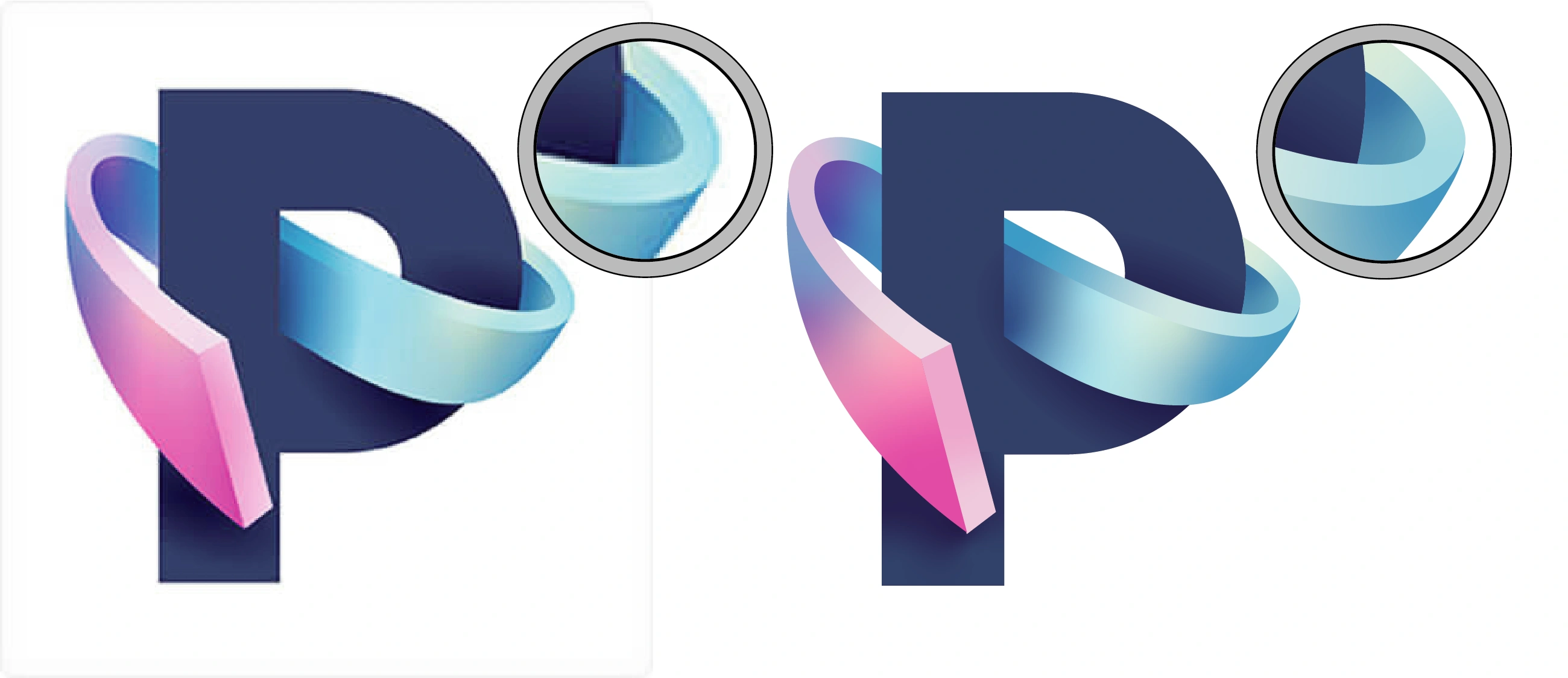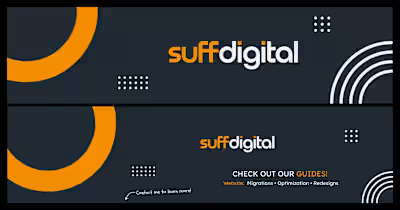Raster to Vector Logo Conversion

Converting Raster to Vector: The Designer's Guide to Precision
When Clients Ask for the Impossible (Sort Of)
Every graphic designer has been there. A client sends you their logo as a PNG or JPEG file and says, "I need this as an SVG so I can use it anywhere and scale it to any size." Simple request, right? Well, not exactly.
What They're Really Asking For
Your client isn't asking you to redesign their logo or fix any design issues. They're asking you to perform a digital transformation that sounds straightforward but requires surgical precision: converting a raster image (made of pixels) into a vector format (made of mathematical paths and shapes).
The Accuracy Challenge
Here's the reality check: 100% accuracy is impossible.
When converting from raster to vector, you're essentially recreating the image using different building blocks. Raster images use pixels with specific colors and positions, while vector images use mathematical formulas to define shapes, lines, and fills.
Why Perfect Conversion Doesn't Exist
Shading Algorithms: Vector software uses different algorithms to interpret gradients and shadows than what was originally created in the raster file.
Color Limitations: Vector formats have different color space capabilities compared to raster formats. Some subtle color variations simply can't be replicated exactly.
Mathematical Approximation: Converting pixel-based information to mathematical curves always involves some level of approximation.
The Designer's Responsibility
Even though perfect conversion isn't possible, your job is to get as close as humanly possible. This isn't about cutting corners, it's about understanding the limitations and working within them to deliver the best possible result.
What to Focus On
Shape Precision: Every curve, corner, and line should match the original as closely as possible
Color Matching: Get as close as the vector format allows
Expression Preservation: Maintain the visual character and feel of the original design
Scalability: Ensure the vector version works at all sizes
The Gradient Problem
One of the most challenging aspects is gradients. You'll often find yourself in a situation where the gradient looks perfect at first glance, but upon closer inspection, there are subtle differences. The vector version might have slightly different color stops or interpolation methods.
This is where your eye for detail becomes crucial. You need to identify these discrepancies and adjust until the difference is imperceptible to the average viewer.
Best Practices for Raster-to-Vector Conversion
Start with High-Resolution Source: The better the original, the better the conversion
Use Multiple Reference Points: Don't rely on just one area for color matching
Test at Multiple Scales: Vector files need to work at all sizes
Communicate Limitations: Set realistic expectations with your client
Iterate and Refine: This isn't a one-and-done process
The Bottom Line
Converting raster to vector isn't about achieving mathematical perfection, it's about achieving visual perfection. Your goal is to create a vector version that looks identical to the original at first glance and maintains that quality at any scale.
When a client asks for this conversion, they're trusting you with their brand identity. They need to know that their logo will look exactly the same whether it's on a business card or a billboard. That's the real value you're providing.
Remember
This isn't just a technical task, it's a craft. Every designer develops their own techniques and workflows for achieving the best possible results. The key is understanding that while 100% mathematical accuracy isn't achievable, 100% visual accuracy is your goal.
Your client's logo deserves nothing less than your absolute best effort to maintain its integrity, character, and impact in its new vector form.
Like this project
Posted Aug 21, 2025
Converted a raster logo to a precise vector format, ensuring clarity and scalability for all applications.
Likes
0
Views
8



